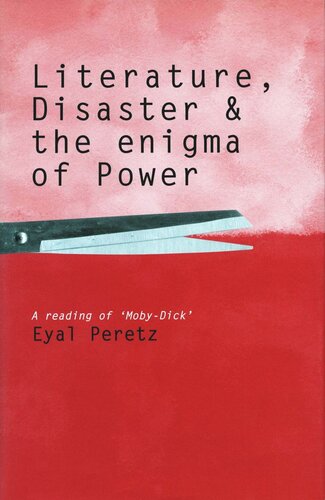

Most ebook files are in PDF format, so you can easily read them using various software such as Foxit Reader or directly on the Google Chrome browser.
Some ebook files are released by publishers in other formats such as .awz, .mobi, .epub, .fb2, etc. You may need to install specific software to read these formats on mobile/PC, such as Calibre.
Please read the tutorial at this link: https://ebookbell.com/faq
We offer FREE conversion to the popular formats you request; however, this may take some time. Therefore, right after payment, please email us, and we will try to provide the service as quickly as possible.
For some exceptional file formats or broken links (if any), please refrain from opening any disputes. Instead, email us first, and we will try to assist within a maximum of 6 hours.
EbookBell Team

4.1
10 reviewsThis powerful new reading of Moby-Dick brings into play some of the most consequential theoretical developments of the last three decades in philosophy, cultural studies, and literary criticism. It takes account of four trends in innovative critical thought: recent theories of power, as articulated by Foucault, Deleuze, Butler, and Agamben; theories of trauma and testimony developed by Felman and Caruth; the new thinking of ethics, articulated by Levinas and Derrida; and the new thinking of history developed by New Historicism. All four, the author argues, participate in a groundbreaking new elaboration of the concept of disaster. Moby-Dick's privilege, the author claims, anticipates this new thinking of the disaster and shows that it demands simultaneously a new thinking of the literary. Read from this perspective, Melville's novel can both be illuminated by these recent theoretical developments and, in turn, illuminate them, adding new and complex dimensions to their findings.